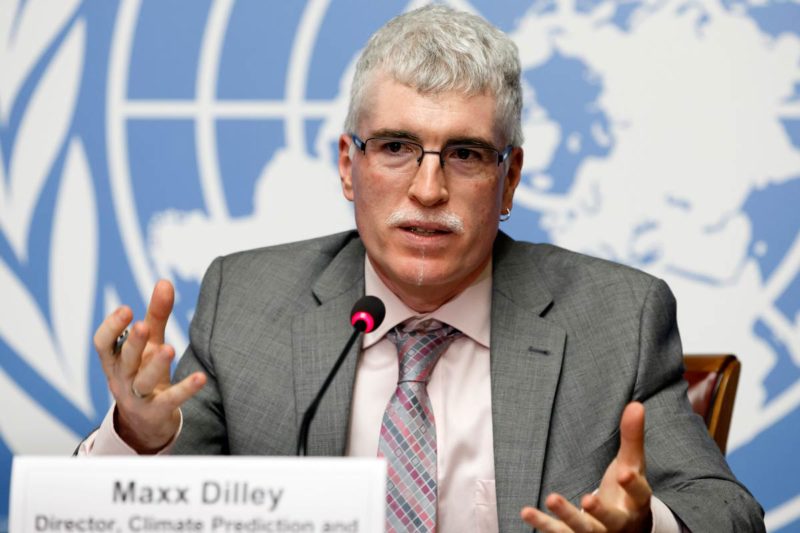Africa’s Small Island Developing States (SIDS) came under scrutiny at the recently held UN climate change summit in Marrakech, Morocco, where scientists expressed concern over the grim prospects facing the hapless nations.

The countries are: Mauritius, Seychelles, Comoros, Cabo Verde (Cape Verde), Sao Tome & Principe, and Guinea Bissau. SIDS are are low-lying coastal countries that tend to share similar sustainable development challenges, including small but growing populations, limited resources, remoteness, susceptibility to natural disasters, vulnerability to external shocks, excessive dependence on international trade, and fragile environments.
At a side-event on “Innovative solutions to climate change challenges for the SIDS” organised by the SYAH Cabo Verde, the African Climate Policy Centre of the United Nations Economic Commission for Africa (UNECA) and the World Meteorological Organisation (WMO), participants stressed the need to build resilience in the SIDS countries, in the light of the fact that they are highly vulnerable to hydro-meteorological hazards and climate change.
“There is need to develop capacity to undertake effective long-term planning and implement decision making mechanisms to assist SIDS to manage the multi-sectoral risks that they face and enable them to transition to blue and green economies,” says Dr Maxx Dilley, Director of Climate Prediction and Adaptation at the WMO.

According to him, climate related extremes are likely to increase in SIDS with the acceleration of the hydrologic cycle due to global warming, adding that sea-level rise is an existential threat for some countries.
He points out that over 335 major natural disasters have occurred across all SIDS since 2000, resulting in an estimated $22.7 billion in direct damages. “For example, Hurricane Fred in Cabo Verde (2015) led to nine deaths and $1.1m in economic losses,” he adds.
Consequently, Dilley stresses, besides strengthening collaboration with existing policy mechanisms in the continent to prioritise the SIDS issues, the WMO is providing weather and climate services. “This is with particular attention to marine services, renewable energy, and tracking loss and damage, should be included in National Adaptation Plans and Nationally Determined Contributions of the United Nations Framework Convention on Climate Change (UNFCCC).”
His words: “The WMO is developing National Strategic Plans for NMHSs – endorsed at the national level, which would include: Weather and climate services, Systematic marine and coastal observations, Increased capacity development, Improved marine research and South-South (including SIDS-SIDS) cooperation and partnerships.”

Similarly, Dr Joseph Intsiful, Senior Climate Science Expert, African Climate Policy Centre, UNECA, in a presentation titled “Supporting African SIDS to Manage Climate Risks,” points out that while the SAMOA Pathway articulates the unique challenges of SIDS in addressing climate variability and change and Disaster Risk and calls for urgent action to manage climate risks, the Paris Agreement requires urgent action to manage/reduce the existential threat facing SIDS.
“This is in the light of the fact that Africa’s aquatic and marine resources remain largely unexploited and being recognised for its potential contribution to inclusive and sustainable development,” he says, adding that the forum presents an opportunity to link the Blue Economy sectors, with high productivity potential, to accelerating structural transformation, primarily in Coastal and Island States in the region.
He lists solutions in this regard to include: Making climate information widely available African-wide with specific focus on African SIDS, Numerical Weather Prediction & Early Warning System, Forecasting Hurricane Fred over Cabo Verde, Workshops on Use of ACPC-ClimDev Numerical Weather Prediction and Early Warning System, Setting up of Numerical Weather Prediction System and Climate Services Information Systems Africa-wide, and Wireless Connectivity in Indian Ocean SIDS.
Intsiful discloses: “This is the first time such an e-infrastructure is being widely deployed continentally and addressing the unique needs of SIDS. It is state-of-the-art and cost-effective – based on Opensource tools and data. Climate Services Information System was installed/deployed by and maintained by ClimDev experts. Also, data analysis and visualisation system were installed/deployed by ClimDev experts.”
The event was also graced by dignitaries such as Antonio Palazuelos Prieto (Executive Director of SYAH Cabo Verde), Dr Justus Joseph Kabyemera (Coordinator, ClimDev Africa Special Fund in the Africa Development Bank), and Dr Pradeep Mongo (United Dations Industrial Development Organisation).
